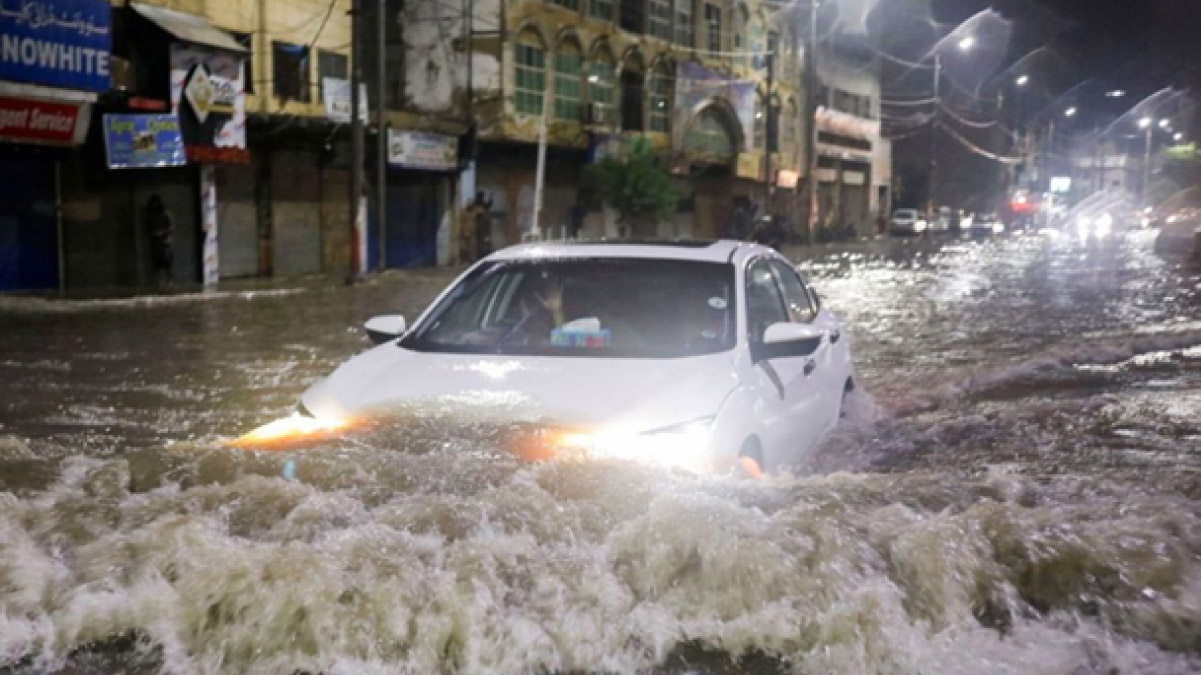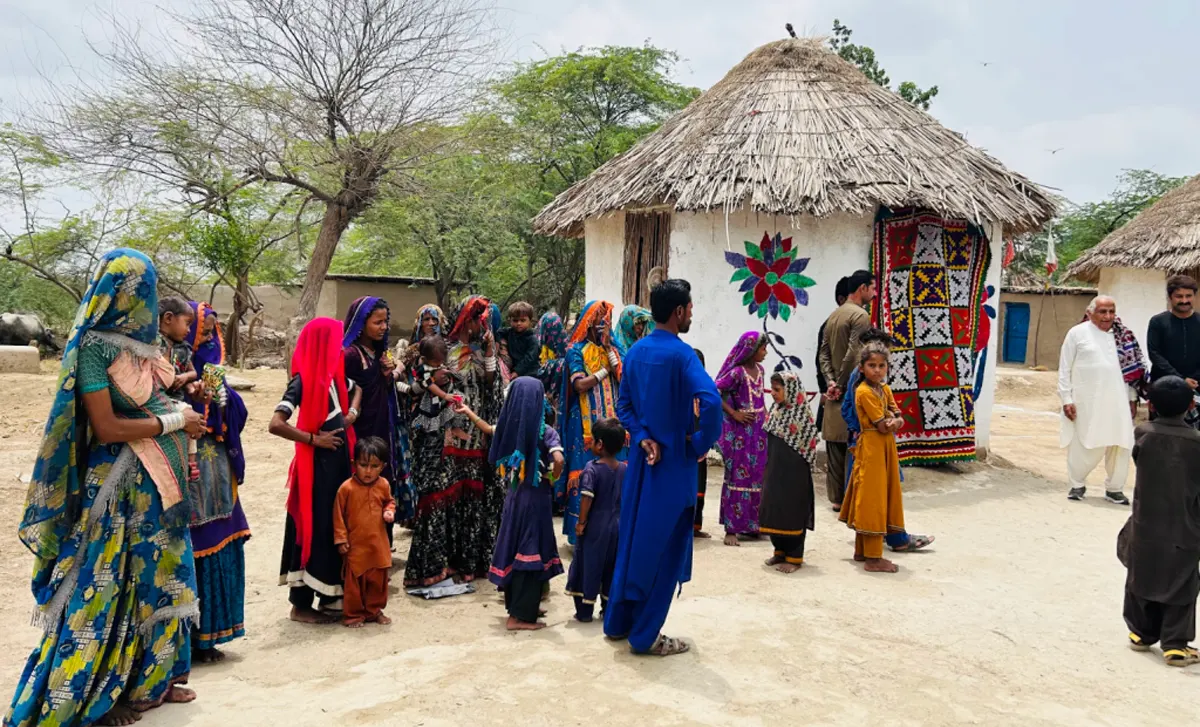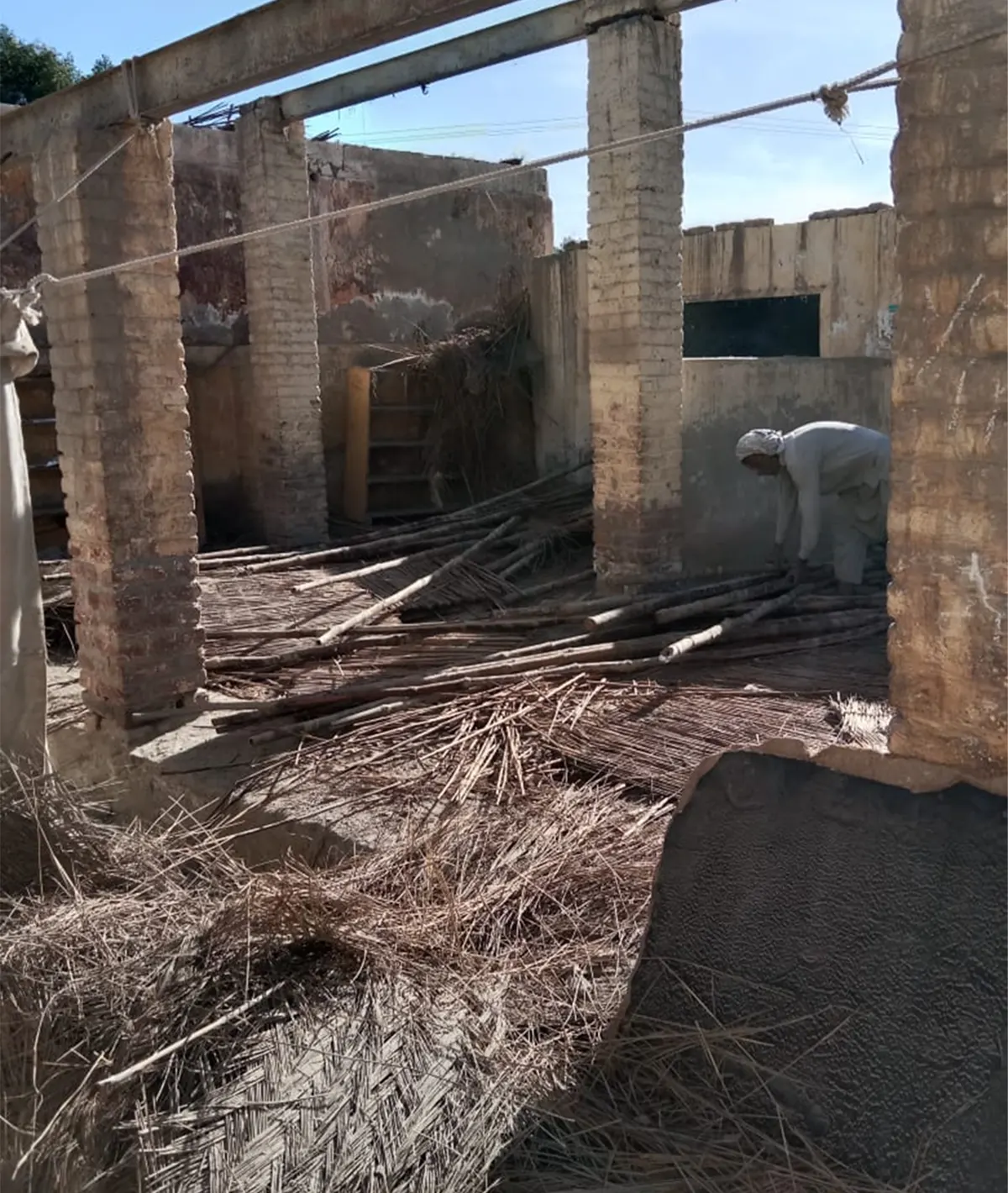Yasmeen Lari Interview
My name is Ammad Zuberi and I am a high school student at Friends Seminary in New York City. Climate Change is having widespread effects across the globe and I am interested in meeting and listening to people who are fighting against it, in order to spread awareness to the fight against global warming.
Today, I am interviewing Yasmeen Lari, the first female architect in Pakistan, and one of the most renowned architects in Pakistan by the time of her official retirement from the field in 2000. After graduating from the School of Architecture at Oxford Brookes University, Yasmeen Lari and her husband created Lari Associates, a firm which handled many major architectural projects in Pakistan until her retirement. Yasmeen Lari created the Heritage Foundation of Pakistan, focusing on conserving heritage sites across Pakistan that are rapidly disappearing. She has also focused on making urban and rural areas more eco-friendly, which is especially important in Pakistan, the eighth most vulnerable country to climate change in the world. Yasmeen Lari’s success in creating a zero-carbon street in Karachi, has paved the way for more sustainable eco-friendly spaces in poor neighborhoods. These spaces give the inhabitants access to more income generating opportunities and cleaner, more hygienic environments to raise their families in.
Ammad Zuberi (AZ): Why did you get into architecture in the first place?
Yasmeen Lari (YL): After partition, my father was a top bureaucrat and he was charged with some major architectural and development projects for newborn Pakistan. During this time, he would come home and discuss the lack of properly trained architects and planners with the ability to carry out these projects in the country. I wondered whether I could become a proper architect, and that idea stuck with me as I went to England for university and eventually studied to become an architect. There weren’t any women in the field in Pakistan, but I was eager to join and work in the field through early difficulties.
AZ: How do you describe what you currently do?
YL: I use my understanding of our heritage and how people lived in the past to help my current eco-friendly and humanitarian work. One such instance was in 2005 when a devastating earthquake in Kashmir killed over 80,000 people displacing 400,000 people. Everyone wanted to help but most people didn’t know how. We sent builders in and began building hamlets using early but proven techniques and using the debris, stone, and timber we found at the site of the disaster, rather than shipping in materials from abroad. I wasn’t sure if the project would be successful, I hadn’t done this kind of work before, but we started building hamlets quickly by recycling the materials and volunteers began to flock to help us build these shelters, from across Pakistan and abroad. We eventually got funding from some big companies and managed to build around 12,000 hamlets for people whose homes had been destroyed. I learned not to get disheartened and realized that when do humanitarian work effectively and well, you will always find volunteers willing to help
AZ: What motivated you to get involved in sustainable architecture and shift away modern architectural techniques and materials?
YL: I practiced traditional architecture for 36 years, building fantastic structures, projects such as social housing in Lahore now exhibited by the MoMA, yet my work was only for the elite. I began to become aware of the injustices surrounding me and realized that I had lived a privileged life and began to fight to stop these injustices. I got a law passed that you couldn’t call yourself an architect without proper training, leveling the playing field for young people who had found it difficult to break into the field. Long before climate change was discussed as a major issue, I saw how nature in my country had been changing as it hadn’t before. I decided to promote and use zero-carbon materials (limestone and bamboo), because cement which was terrible for the environment had taken over. I’ve continued to fight for causes since, because everything good that happens in society is good for you as well, and I have made partnerships with people in my fight against these injustices which allows us to actually make a difference.
AZ: Who are your eco-friendly structures and areas for?
YL: There is no proper strategy for housing anywhere in this country. My housing is for those susceptible to natural disasters and without the means to help themselves. I build areas and prefabricated structures, easy to disassemble and transport, out of zero-carbon materials. They are cheap to buy and we then give people stewardship of these clean eco-friendly spaces, and they begin taking ownership and keeping it clean. We also teach people how to build their own eco-friendly housing in order to spread the word. When recovering from disaster we have to build back correctly or risk worsening the situation.
AZ: Does living in Karachi, the fifth most susceptible city in the world to climate change, bring a sense of urgency into your work?
YL: Everything is unregulated in Karachi, heritage sites are allowed to die, there is no civic responsibility for the city, it has been neglected and polluted which is bad for the health and morale of the people. Water cannot permeate through the impervious concrete roads with no proper drains, and water is then thrown into the ocean which is so ineffective in a country suffering from water scarcity. I’ve made a zero-carbon street in Karachi, terra cotta is used instead of concrete, letting the water go into the ground, it is a better environment for urban citizens with fresh air and trees, and it is aesthetically pleasing with all electrical cables underground. The people have begun to take ownership of the space, ensuring that it stays clean. Climate change is a reality here (floods and heatwaves are becoming frequent) and it is only getting worse. I built a zero-carbon street as an example of what can happen if we take responsibility for our city which we desperately need to.
AZ: What has been your most important project so far?
YL: Open-fire stoves have been killing and giving eye-diseases to people who cook, sadly women are the most often affected. They breathe convoluted smoke that goes into the air and pollutes it, and the stoves are unhygienic giving the people who eat the food all sorts of diseases. The new chulhas (stoves) that we have been making using local artisans, mostly women, out of sustainable material, and on a raised platform to avoid being affected by floods. Almost 80,000 have been built serving around 600,000 people, the biggest building I’ve made serves only 2,500 people, which project was more important?
(Click here for more information on the project)
AZ: What are your achievable goals we can all work towards?
YL: Everybody in Karachi should have at least a one room safe accommodation, stove, bathroom, and access to fresh water. Forming partnerships are necessary to achieving this goal, the government will not help, and we need to make the city function more effectively and not waste resources such as water that we can’t afford to. As climate change worsens severe weather, causing the heavy rains this summer and more, we cannot do this as individuals we must join together to improve our infrastructure, cities, and home.
I interned with Mrs. Lari this summer and I feel that I have learned so much by watching and helping her organization work, and how hard it is to actually convince people to become more eco-friendly. During my time at Mrs. Lari’s office Pakistan experienced its worst ever monsoon season, currently a third of the country is underwater, millions have been displaced, and more than a thousand people are dead. Many people view climate change as an issue for the future, but across the world people are suffering, and it will eventually affect everyone if we don’t recognize and work to fix the issue. In Pakistan, climate change is an everyday reality, extreme weather events are becoming worse, making Yasmeen Lari’s work in creating more sustainable infrastructure that can withstand these awful disasters more crucial than ever. Mrs. Lari’s work is inspirational, students from around the world come to intern at her office, by creating partnerships with locals she is making permanent changes that will protect and empower people.
Projects
Hello I’m Ammad Zuberi, I’m sure you’ve heard of the devastating
On my trip to Pakistan this summer, I had the amazing opportunity to go and survey the sustainable village project that I had raised funds for in 2022 after deadly floods dislocated 33 million people in Pakistan.
On my trip to Pakistan this summer, I had the amazing opportunity to go and survey the sustainable village project that I had raised funds for in 2022 after deadly floods dislocated 33 million people in Pakistan.




